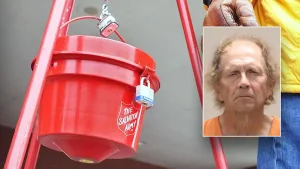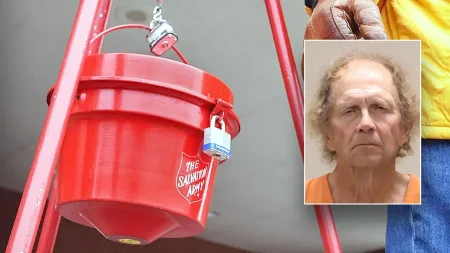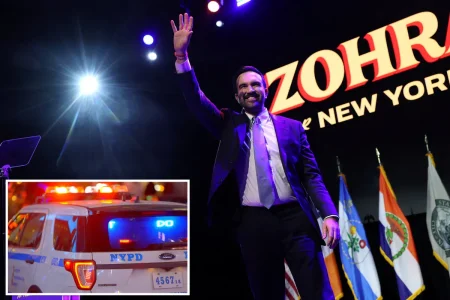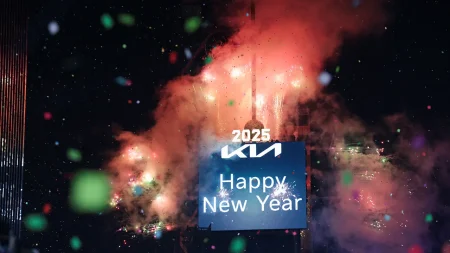Venezuela’s Opposition Outlines Strategy to Dismantle Maduro Regime with U.S. Support
In a significant development that could reshape Venezuela’s political landscape, key opposition leaders have revealed ongoing communications with Washington regarding strategic plans to dismantle what they describe as President Nicolás Maduro’s “criminal structure.” These discussions mark a potential turning point in international efforts to address Venezuela’s prolonged crisis, which has driven millions to flee the country amid economic collapse and allegations of authoritarian rule.
Opposition Leaders Confirm High-Level Talks with U.S. Officials
The Venezuelan opposition movement, which has long sought international support in its struggle against Maduro’s government, confirmed this week that several of its prominent figures have engaged in formal meetings with senior U.S. officials. These discussions, described by opposition sources as “substantive and ongoing,” have focused on developing a coordinated approach to challenging Maduro’s grip on power while addressing the humanitarian crisis that has devastated what was once Latin America’s wealthiest nation. “We are not simply seeking regime change,” explained a senior opposition representative who requested anonymity due to security concerns. “What we’re communicating to our American counterparts is the need for a comprehensive strategy that addresses the criminal networks that have captured Venezuelan institutions and plundered the country’s resources.”
The timing of these meetings coincides with growing international skepticism about Maduro’s recent claims of electoral victory, which many democratic nations have refused to recognize. According to diplomatic sources familiar with the discussions, U.S. officials have expressed willingness to support a transition plan that prioritizes the restoration of democratic institutions while ensuring accountability for human rights abuses and corruption under the current administration. “The United States continues to support the Venezuelan people in their aspiration for a peaceful return to democracy,” stated a U.S. State Department spokesperson when asked about the meetings, though they declined to provide specific details about the nature of the communications.
Dismantling the “Criminal Structure”: A Complex Challenge
At the heart of the opposition’s proposal lies the challenging task of dismantling what they characterize as an entrenched system of corruption, drug trafficking, and human rights abuses. According to documents reportedly shared during these meetings, the opposition has mapped out a detailed analysis of the networks that sustain Maduro’s power, including military officials, business allies, and international supporters. Economic analysts estimate that billions in Venezuelan assets have been diverted through complex financial schemes during Maduro’s tenure, creating a powerful incentive for regime insiders to resist democratic change.
“What we’re dealing with is not simply an authoritarian government, but a sophisticated criminal enterprise that has hijacked a state,” explained Caracas-based political analyst María Elena Rodríguez. “Any transition plan must address not only the political aspects but also the dismantling of these illicit networks that have become deeply embedded in Venezuela’s institutions.” The opposition’s strategy reportedly includes proposals for international cooperation on asset recovery, targeted sanctions against key figures, and mechanisms for transitional justice that would address human rights violations while providing paths for lower-level officials to break with the regime. Human rights organizations have documented thousands of cases of political persecution, torture, and extrajudicial killings in Venezuela since Maduro assumed power following Hugo Chávez’s death in 2013.
International Implications and Regional Stability
The intensification of U.S.-opposition communications carries significant implications for regional stability and geopolitical alignments in Latin America. Venezuela’s crisis has already created ripple effects throughout the hemisphere, with neighboring countries struggling to absorb millions of Venezuelan refugees and migrants. Colombia alone hosts nearly two million Venezuelans, straining public services and generating social tensions in border regions. “This is not just about Venezuela’s internal politics,” noted former Colombian diplomat Carlos Martínez. “The resolution of Venezuela’s crisis is fundamental to regional security, migration management, and economic recovery throughout Latin America.”
The opposition’s engagement with Washington also occurs against the backdrop of evolving geopolitical rivalries, as Russia, China, Iran, and Cuba maintain varying degrees of support for Maduro’s government. These nations have provided economic lifelines, military equipment, and diplomatic backing that have helped the regime withstand international pressure and sanctions. Energy markets are closely monitoring developments as well, given Venezuela’s position as holder of the world’s largest proven oil reserves. “Any significant political transition in Venezuela would inevitably impact global energy markets,” explained energy consultant Rodrigo Fernandez. “The possibility of Venezuela’s oil industry recovering under a democratic government would have far-reaching consequences for OPEC, regional energy dynamics, and global supply chains.” Opposition leaders have indicated that their transition plans include provisions for restructuring the state oil company PDVSA, whose production has collapsed from over 3 million barrels per day in the late 1990s to fewer than 800,000 barrels today due to mismanagement, corruption, and lack of investment.
Public Opinion and Political Realities Inside Venezuela
Despite the international dimension of these discussions, the ultimate success of any transition plan depends on conditions within Venezuela itself, where citizens continue to face severe economic hardship and political repression. Recent independent polls suggest that more than 80% of Venezuelans desire political change, yet many remain skeptical about the opposition’s ability to deliver it given previous failed attempts to dislodge Maduro. The average Venezuelan citizen struggles with chronic food and medicine shortages, collapsing public services, and inflation that has destroyed purchasing power. “People are exhausted,” said Carmen Blanco, a 57-year-old teacher in Maracaibo, Venezuela’s second-largest city. “We support anyone who can help end this nightmare, but after so many disappointments, we need to see concrete results.”
The opposition movement itself represents a coalition of diverse political tendencies united primarily by their rejection of Maduro’s rule. This diversity has been both a strength and a challenge, allowing the movement to appeal to various segments of society while sometimes complicating decision-making and strategic coordination. Opposition leaders acknowledge these challenges but emphasize that their communications with Washington reflect a growing consensus on fundamental principles for democratic transition. “We have learned from past mistakes,” stated Juan Ramírez, an opposition coordinator for civil society engagement. “Our approach now incorporates not just political parties but also civil society organizations, student movements, labor unions, and business associations. The plan to dismantle Maduro’s criminal structure is the product of broad consultation and represents a genuine national consensus.”
Prospects for Democratic Transition Amid Global Challenges
As these communications between Venezuelan opposition figures and U.S. officials continue, analysts remain cautiously optimistic about prospects for democratic change while acknowledging the formidable obstacles that remain. The international community’s attention has been divided by multiple global crises, potentially limiting the resources and focus available for Venezuela. Additionally, the Maduro regime has demonstrated remarkable resilience, adapting to sanctions and diplomatic isolation through alternative economic arrangements and repressive security measures. “The path forward will not be easy or quick,” warned veteran Latin American affairs specialist Elena Méndez. “Dismantling entrenched criminal networks while rebuilding democratic institutions requires sustained international cooperation, strategic patience, and flexible approaches that can adapt to changing circumstances.”
Nevertheless, the current dialogue represents perhaps the most sophisticated and coordinated effort to date to address Venezuela’s deep-rooted crisis. By focusing specifically on the criminal dimensions of the regime rather than merely its political aspects, the opposition appears to be appealing to international legal frameworks and security concerns that might generate broader support than previous approaches. For millions of Venezuelans both inside the country and scattered throughout the diaspora, these discussions represent a glimmer of hope amid prolonged suffering. As one opposition leader put it, “What we’re communicating to Washington and to the world is that Venezuela’s future cannot be built without dismantling the structures that have caused so much pain. This is not just about politics—it’s about justice, recovery, and the fundamental right of Venezuelans to live in dignity in their own country.”








